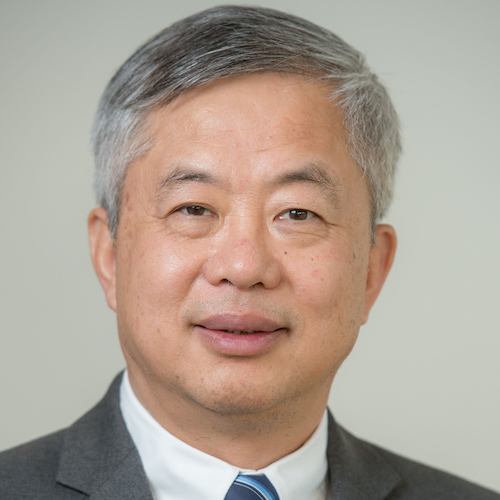
Chang-Wen Chen, State Univ. of NY at Buffalo
Wednesday, June 9, 08:15 - 09:45 Eastern Time
The main theme of this panel is to address the major changes in signal and information processing research in power grid operation. We will present the grand challenges in power transmission and distribution grid posed by decarbonization and transportation electrification from three main angles: Signal processing applications for enhancing power grid operation and for power system data and control security.
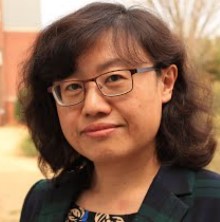
Dr. Ning Lu is a Professor at the ECE Department of North Carolina State University. Dr. Lu is an IEEE Fellow and has over 25 years of experience in electric power engineering. She received her Ph.D. degree from Rensselaer Polytechnic Institute in 2002. From 2003 to 2012, Dr. Ning Lu was a senior research engineer with Pacific Northwest National Laboratory. Dr. Lu's research interests include load modeling and control, energy management systems, renewable integration, microgrid modeling and control, real-time and faster-than-real-time large-scale co-simulation systems, and meter data analysis. She has authored or co-authored more than 150 publications, including journal articles, conference proceedings, patents, and technical reports.
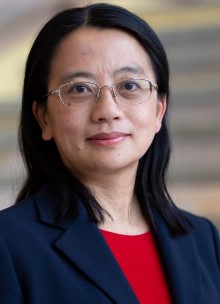
Dr. Min Wu is a Professor of Electrical and Computer Engineering and a Distinguished Scholar- Teacher at the University of Maryland, College Park. She is currently serving as Associate Dean for Graduate Affairs for the University’s Clark School of Engineering. She received her Ph.D. degree in electrical engineering from Princeton University in 2001. At UMD, she leads the Media, Analytics, and Security Team (MAST), with main research interests on information security and forensics, multimedia signal processing, and applications of data science and machine learning in health and IoT. Dr. Wu was elected as IEEE Fellow, AAAS Fellow, and Fellow of the National Academy of Inventors. She chaired the IEEE Technical Committee on Information Forensics and Security, and has served as Vice President - Finance of the IEEE Signal Processing Society and Editor-in-Chief of the IEEE Signal Processing Magazine.
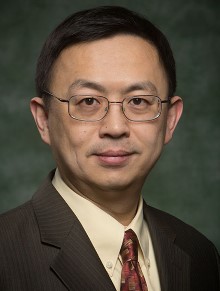
Dr. Ning Zhou (S’01- M’05- SM’08) is currently with the Electrical and Computer Engineering Department at Binghamton University as an associate professor. In 2005, he received his Ph.D. in Electrical Engineering with a minor in statistics from the University of Wyoming. From 2005 to 2013, Dr. Zhou worked as a power system engineer at the Pacific Northwest National Laboratory. His research interests include power system dynamics and statistical signal processing. Dr. Zhou is a senior member of the IEEE Power and Energy Society (PES). He has been an associate editor for IET Generation Transmission and Distribution since 2016. He is the lead author of the 2009 Technical Committee Prize Paper from the IEEE/PES Power System Dynamic Performance Committee. He has been the co-Chair of IEEE PES Working Group on Data Access and secretary of IEEE PES Task Force on Oscillation Source Location since 2016. He is the recipient of the 2009 Outstanding Engineer of Year Award from IEEE Power and Energy Society (PES) Richland Chapter. He is the recipient of the IEEE PES Outstanding Branch Counselor Award in 2017. He is the PI of the NSF CAREER award titled “Integrated Dynamic State Estimation for Monitoring Power Systems under High Uncertainty and Variation” in the year of 2019.
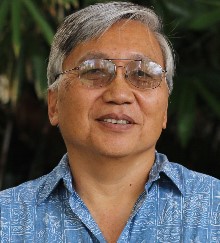
Prof. Tony Kuh received his B.S. in Electrical Engineering and Computer Science at the University of California, Berkeley in 1979, an M.S. in Electrical Engineering from Stanford University in 1980, and a Ph.D. in Electrical Engineering from Princeton University in 1987. Dr. Kuh previously worked at AT&T Bell Laboratories and has been on the faculty in Electrical Engineering at the University of Hawai’i since 1986. He is currently a Professor in the Department, serving as director of the interdisciplinary renewable energy and island sustainability (REIS) group. Previously, he served as Department Chair of Electrical Engineering. Dr. Kuh's research is in the area of neural networks and machine learning, adaptive signal processing, sensor networks, and renewable energy and smart grid applications. Dr. Kuh won a National Science Foundation Presidential Young Investigator Award and is an IEEE Fellow. He was also a recipient of the Boeing A. D. Welliver Fellowship and received a Distinguished Fulbright Scholar’s Award working at Imperial College in London. From 2017 – 2021 he served as program director for NSF in the Electrical, Communications, and Cyber Systems (ECCS) division working in the Energy, Power, Control, and Network (EPCN) group. At NSF he also assisted in initiatives including Harnessing the Data Revolution (HDR), the Mathematics of Deep Learning (MoDL), the AI Institutes, Cyber Physical Systems (CPS), and Smart and Connected Communities. He currently serves on the Awards Board of the IEEE Signal Processing Society and is President of the Asia Pacific Signal and Information Processing Association.

Anna Scaglione (M.Sc.'95, Ph.D. '99) is currently a Professor of Electrical, Computer and Energy Engineering at Arizona State University. She was Professor of Electrical and Computer Engineering previously at the University of California at Davis (2008-2014) and at Cornell University (2001-2008), where she became Associate Professor with tenure in 2006. Prior to joining the engineering faculty at Cornell, Scaglione was an Assistant Professor at the University of New Mexico (2000-2001). Dr. Scaglione’s expertise is in the broad area of statistical signal processing with application to communication networks, electric power systems/intelligent infrastructure, and network science. Dr. Scaglione was elected an IEEE fellow in 2011. She is the recipient of the 2000 IEEE Signal Processing Transactions Best Paper Award, the 2013 IEEE Donald G. Fink Prize Paper Award for the best review paper in that year among all IEEE publications. Also, her work with her student earned the 2013 IEEE Signal Processing Society Young Author Best Paper Award (Lin Li) and several best conference paper awards. She was SPS Distinguished Lecturer for the years 2019-2020 and is the recipient of the 2020 Technical Achievement Award from the IEEE Communication Society Technical Committee on Smart Grid Communications. Her past record of service, particularly in the Signal Processing the Communication and Control societies, is extensive. She is currently serving as Deputy Editor-in-Chief for the IEEE Transactions on Control of Networked Systems and in the IEEE ComSoc awards committee.
Thursday, June 10, 08:15 - 09:45 Eastern Time
Integrated sensing and communication (ISAC) is believed to be a key feature of the next generation wireless communications. The use of higher frequency bands (from mmWave up to THz), wider bandwidth, and denser distribution of massive antenna arrays in future 6G systems will enable the integration of wireless signal sensing and communication in a single system to mutually enhance each other. Signal processing architectures and algorithms are the key to get information out of the sensing signals for different services and to enable collaboration between 6G nodes to jointly work on ISAC. To promote exchanges of views, ideas, and interesting research findings between experts and scholars in this field, we propose to have this panel at the flagship IEEE conference of signal processing.
Dr. Peiying Zhu from Huawei will be the moderator for the interactive technical discussion, while experts in this field such as Prof. Wei Yu from University of Toronto, Prof. Petar Popvski from Aalborg University, Prof. Tho Le-Ngoc from McGill University, Prof. Natalia Nikolova from McMaster University and Professor Giuseppe Caire from Technical University of Berlin are the panelists that will share their views on topics such as joint signal framework for RF sensing and communication, sensing enhanced communication and localization, machine learning for the fusion of multi-dimensional sensing results, ISAC with THz bands and ISAC for V2X and UAV scenarios. Short presentations and themed interactive discussions will be combined to make the panel discussion constructive and fruitful.
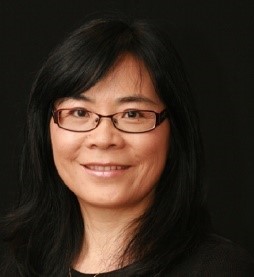
Dr. Peiying Zhu (Fellow, IEEE), Senior Vice President of Wireless Research, a Huawei Fellow, IEEE Fellow and Fellow of Canadian Academy of Engineering. She is currently leading 5G and beyond wireless research and standardization in Huawei. The focus of her research is advanced radio access technologies. She is actively involved in 3GPP and IEEE 802 standards development. She has been regularly giving talks and panel discussions on 5G vision and enabling technologies. She led the team to contribute significantly to 5G technologies. Prior to joining Huawei in 2009, Peiying was a Nortel Fellow and Director of Advanced Wireless Access Technology in the Nortel Wireless Technology Lab. She led the team and pioneered research and prototyping on MIMO-OFDM and Multi-hop relay. Many of these technologies developed by the team have been adopted into LTE standards and 4G products. Dr. Zhu has more than 200 granted patents.
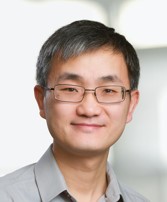
Dr. Wei Yu (Fellow, IEEE) received the B.A.Sc. degree in computer engineering and mathematics from the University of Waterloo, Waterloo, ON, Canada, in 1997, and the M.S. and Ph.D. degrees in electrical engineering from Stanford University, Stanford, CA, USA, in 1998 and 2002, respectively. Since 2002, he has been with the Electrical and Computer Engineering Department, University of Toronto, Toronto, ON, Canada, where he is currently Professor and Canada Research Chair (Tier 1) in Information Theory and Wireless Communications.,Dr. Yu is a Fellow of the Canadian Academy of Engineering, and a member of the College of New Scholars and Artists and Scientists of the Royal Society of Canada. He received the Steacie Memorial Fellowship in 2015, the IEEE Marconi Prize Paper Award in Wireless Communications in 2019, the IEEE Communications Society Award for Advances in Communication in 2019, the IEEE Signal Processing Society Best Paper Award in 2017 and 2008, the Journal of Communications and Networks Best Paper Award in 2017, and the IEEE Communications Society Best Tutorial Paper Award in 2015. He is the President of the IEEE Information Theory Society in 2021, and has been serving on its Board of Governors since 2015. He served as the Chair for the Signal Processing for Communications and Networking Technical Committee of the IEEE Signal Processing Society from 2017 to 2018. He is currently an Area Editor for the IEEE Transactions on Wireless Communications, and in the past served as an Associate Editor for the IEEE Transactions on Information Theory, IEEE Transactions on Communications, and IEEE Transactions on Wireless Communications. He was an IEEE Communications Society Distinguished Lecturer from 2015 to 2016.
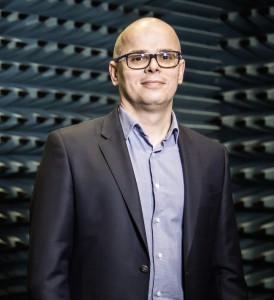
Dr. Petar Popvski (Fellow, IEEE) received the Dipl.-Ing. and M.Sc. degrees in communication engineering from the University of Sts, and the Cyril and Methodius in Skopje and the Ph.D. degree from Aalborg University in 2005, where he is a Professor with Aalborg University, where he heads the Section on Connectivity. He has authored the book Wireless Connectivity: An Intuitive and Fundamental Guide (Wiley, 2020). His research interests are in the area of wireless communication and communication theory. He received an ERC Consolidator Grant in 2015, the Danish Elite Researcher Award in 2016, the IEEE Fred W. Ellersick Prize in 2016, the IEEE Stephen O. Rice Prize in 2018, the Technical Achievement Award from the IEEE Technical Committee on Smart Grid Communications in 2019, and the Danish Telecommunication Prize in 2020. He was the General Chair for IEEE SmartGridComm 2018 and IEEE Communication Theory Workshop 2019. He is also a Member at Large at the Board of Governors in IEEE Communication Society, the Vice-Chair of the IEEE Communication Theory Technical Committee, and Steering Committee Member of IEEE Transactions on Green Communications and Networking. He is currently an Area Editor of the IEEE Transactions on Wireless Communications.

Dr. Tho Le-Ngoc (Fellow, IEEE) received the B.Eng. (Hons.) in electrical engineering and the M.Eng. from McGill University, Montreal, Canada, in 1976 and 1978, respectively, and the Ph.D. degree in digital communications from the University of Ottawa, Canada, in 1983. From 1977 to 1982, he was a R&D Senior Engineer with Spar Aerospace Ltd., Sainte-Anne-de-Bellevue, Canada, and involved in the development and design of satellite communications systems. From 1982 to 1985, he was the Engineering Manager of the Radio Group with the Department of Development Engineeringv of SRTelecom Inc., St. Laurent.,Canada, where he developed the new point-to-multipoint DA-TDMA/TDM Subscriber Radio System SR500. From 1985 to 2000, he was a Professor with the Department of Electrical and Computer Engineering, Concordia University, Montreal. Since 2000, he has been with the Department of Electrical and Computer Engineering, McGill University. His research interest is in the area of broadband digital communications. He is a fellow of the Engineering Institute of Canada, the Canadian Academy of Engineering, and the Royal Society of Canada. He is the recipient of the 2004 Canadian Award in Telecommunications Research, and the IEEE Canada Fessenden Award 2005. He holds a Canada Research Chair (Tier I) on Broadband Access Communications.
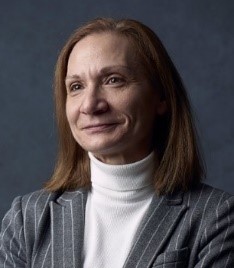
Dr. Natalia K. Nikolova (Fellow, IEEE) received the Dipl.Eng. degree from the Technical University of Varna, Bulgaria, in 1989, and the Ph.D. degree from the University of Electro-Communications, Tokyo, Japan, in 1997.,From 1998 to 1999, she held a Post-Doctoral Fellowship of the Natural Sciences and Engineering Research Council of Canada (NSERC), during which time she was initially with the Microwave and Electromagnetics Laboratory, DalTech, Dalhousie University, Halifax, NS, Canada, and, later, for a year, with the Simulation Optimization Systems Research Laboratory, McMaster University, Hamilton, ON, Canada. In July 1999, she joined the Department of Electrical and Computer Engineering, McMaster University, where she is currently a Professor. Her research interests include inverse scattering and microwave imaging, theoretical and computational electromagnetism, as well as high-frequency computer-aided design. Dr. Nikolova was a recipient of a University Faculty Award of NSERC from 2000 to 2005. From 2008 to 2018, she held a Canada Research Chair in High-frequency Electromagnetics. She is a Fellow of the Canadian Academy of Engineering (CAE).
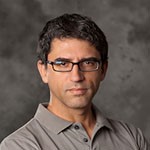
Dr. Giuseppe Caire (Fellow, IEEE) was born in Torino, in 1965. He received the B.Sc. degree in electrical engineering from the Politecnico di Torino, in 1990, the M.Sc. degree in electrical engineering from Princeton University, in 1992, and the Ph.D. degree from the Politecnico di Torino, in 1994.,He has been a Post-Doctoral Research Fellow with the European Space Agency (ESTEC, Noordwijk, The Netherlands), from 1994 to 1995, an Assistant Professor in Telecommunications with the Politecnico di Torino, an Associate Professor with the University of Parma, Italy, a Professor with the Department of Mobile Communications, Eurecom Institute, Sophia-Antipolis, France, a Professor of Electrical Engineering with the Viterbi School of Engineering, University of Southern California, Los Angeles, CA, USA. He is currently an Alexander von Humboldt Professor with the Faculty of Electrical Engineering and Computer Science, Technical University of Berlin, Germany. His main research interests include the field of communications theory, information theory, channel, and source coding with particular focus on wireless communications. He received the Jack Neubauer Best System Paper Award from the IEEE Vehicular Technology Society in 2003, the IEEE Communications Society and Information Theory Society Joint Paper Award in 2004 and in 2011, the Okawa Research Award in 2006, the Alexander von Humboldt Professorship in 2014, the Vodafone Innovation Prize in 2015, an ERC Advanced Grant in 2018, the Leonard G. Abraham Prize for Best IEEE JSAC Paper in 2019, and the IEEE Communications Society Edwin Howard Armstrong Achievement Award in 2020. He was a recipient of the 2021 Leibinz Prize of the German National Science Foundation (DFG). He has served in the Board of Governors of the IEEE Information Theory Society from 2004 to 2007, and as Officer from 2008 to 2013. He was the President of the IEEE Information Theory Society
Friday, June 11, 15:00 - 16:00 Eastern Time
It has long been known that research in electrical engineering and computer science communities often follows a different publication philosophy (i.e., "conference plus journal" versus "preprint plus conference"). While in the past these differences were mainly formal, recently these publication models, along with reproducible research policies, have started to significantly affect the way the research is conducted. Indeed, early disclosure of ideas through preprints can speed up the pace of research. This has worked tremendously well in some areas, e.g. deep learning and artificial intelligence, where the increased pace of research has led to increased impact.
The objective of the proposed panel is to bring these issues to the attention of the signal processing community that gathers at ICASSP since it is the historically and scientifically most important signal processing conference. The overarching question to be discussed is whether the publication model currently adopted in signal processing is still working well, or if changes should be made. A discussion on this topic is very timely and could bring out some interesting ideas, possible solutions and ways forward, in order to keep signal processing research relevant under these changing research scenarios.
To address the issues above, this panel will host researchers from academia and industry, who have published in both signal processing and computer science venues, covering both signal and image/video processing, as well as editors of IEEE journals.
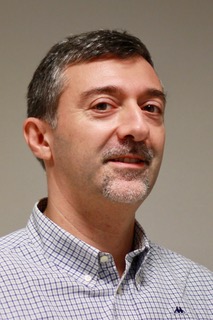
Enrico Magli is a Full Professor at Politecnico di Torino, where he leads a research group active in the field of deep learning for image and video processing. He is an Associate Editor of the IEEE Transactions on Circuits and Systems for Video Technology and the EURASIP Journal on Image and Video Processing, and a former Associate Editor of the IEEE Transactions on Multimedia. He is a Fellow of the IEEE and has been an IEEE Distinguished Lecturer. He is a co-recipient of the 2019 IEEE Multimedia Best Paper Award and the IEEE Geoscience and Remote Sensing Society 2011 Transactions Prize Paper Award. He has been general chair of IEEE ICME 2015 and IEEE MMSP 2013, and TPC chair / area chair for several conferences. He is co-founder and President of the ToothPic start-up, which markets cybersecurity solutions based on camera sensor fingerprints.
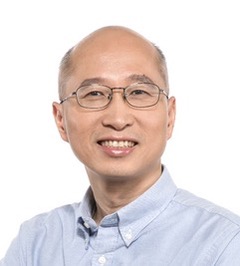
Wenjun (Kevin) Zeng is a Sr. Principal Research Manager and a member of the Senior Leadership Team (SLT) at Microsoft Research Asia. He is on the Editorial Board of International Journal of Computer Vision. He was an Associate Editor-in-Chief of IEEE Multimedia Magazine, an Associate Editor of IEEE Trans. on Circuits & Systems for Video Technology, IEEE Trans. on Info. Forensics & Security, and IEEE Trans. on Multimedia (TMM), and was on the Steering Committee of IEEE Trans. on Mobile Computing (2014-2016) and IEEE TMM (2009-2012). He served as the Steering Committee Chair of IEEE Inter. Conf. Multimedia and Expo (ICME) in 2010 and 2011, and as the General co-Chair or TPC Chair for several IEEE Conferences (e.g., ICME’2018, ICIP’2017, WIFS’2013, ICME’2009, etc.). He is a Fellow of the IEEE.

Alessandro Foi received the M.Sc. degree in Mathematics from the Università degli Studi di Milano, Italy, in 2001, the Ph.D. degree in Mathematics from the Politecnico di Milano in 2005, and the D.Sc.Tech. degree in Signal Processing from Tampere University of Technology, Finland, in 2007. He is Professor of Signal Processing at Tampere University, Finland.
His research interests include mathematical and statistical methods for signal processing, functional and harmonic analysis, and computational modeling of the human visual system. His work focuses on spatially adaptive (anisotropic, nonlocal) algorithms for the restoration and enhancement of digital images, on noise modeling for imaging devices, and on the optimal design of statistical transformations for the stabilization, normalization, and analysis of random data.
He is the Editor-in-Chief of the IEEE Transactions on Image Processing. He previously served as a Senior Area Editor for the IEEE Transactimons on Computational Imaging and as an Associate Editor for the IEEE Transactions on Image Processing, the SIAM Journal on Imaging Sciences, and the IEEE Transactions on Computational Imaging.
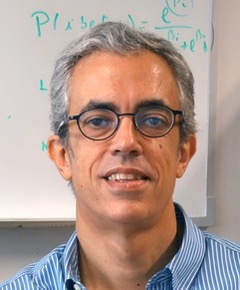
Mário Figueiredo received his PhD (1994) in Electrical and Computer Engineering from Instituto Superior Técnico, University of Lisbon, where he is an IST Distinguished Professor and holds the Feedzai Chair in Machine Learning. He is also a senior researcher and group leader at Instituto de Telecomunicações. His research areas include machine learning, signal processing, and optimization. He received several honors and awards, namely: IEEE Fellow, Fellow of the International Association for Pattern Recognition (IAPR), Fellow of the European Association for Signal Processing (EURASIP), W. R. G. Baker Award (IEEE), EURASIP Technical Achievement Award, member of the Portuguese Academy of Engineering, member of the Lisbon Academy of Science.
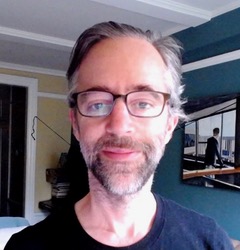
Daniel P. W. Ellis received the Ph.D. degree in electrical engineering from the Massachusetts Institute of Technology, Cambridge, where he was a Research Assistant in the Machine Listening Group of the Media Lab. He spent several years as a Research Scientist at the International Computer Science Institute, Berkeley, CA. In 2000, he took a faculty position with the Electrical Engineering Department, Columbia University, New York. In 2015, he left for his current position as a Research Scientist with Google in New York. His research is concerned with all aspects of extracting high-level information from audio, including speech recognition, music description, and environmental sound processing. He also runs the AUDITORY email list of over 2000 worldwide researchers in perception and cognition of sound.
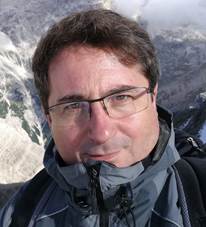
Andrea Cavallaro is Professor of Multimedia Signal Processing and the Director of the Centre for Intelligent Sensing at Queen Mary University of London, UK. He is Turing Fellow at the Alan Turing Institute, the UK National Institute for Data Science and Artificial Intelligence, and Fellow of the International Association for Pattern Recognition (IAPR). He is Editor-in-Chief of Signal Processing: Image Communication; Chair of the IEEE Image, Video, and Multidimensional Signal Processing Technical Committee; an IEEE Signal Processing Society Distinguished Lecturer; an elected member of the IEEE Video Signal Processing and Communication Technical Committee; and a Senior Area Editor for the IEEE Transactions on Image Processing.